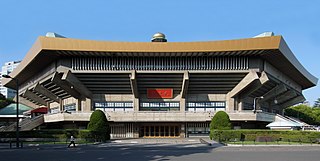 W
WFuji Rock Festival is an annual rock festival held in Naeba Ski Resort, in Niigata Prefecture, Japan. The three-day event, organized by Smash Japan, features more than 200 Japanese and international musicians, making it the largest outdoor music event in Japan. In 2005, more than 100,000 people attended the festival.
 W
WRising Sun Rock Festival is an annual rock festival held in Ishikari, Hokkaido, Japan. The two-day event is organized by WESS. It chiefly features Japanese rock and indie performers.
 W
WThe Rock in Japan Festival is an annual three-day rock festival held during early August at the Hitachi Seaside Park, in Hitachinaka, Ibaraki, Japan, organized by Rockin'on. Rock in Japan Festival is the biggest rock festival in Japan in terms of attendance.
 W
WUtanohi is an annual music festival held in Okinawa. Headliners include Seijin Noborikawa, Begin, Rimi Natsukawa, Orange Range, HY, Mongol800, Kariyushi58, 2side1brain, Perfume and The Boom, best known for the song "Shima Uta".
 W
WThe Summer Sonic Festival is an annual two — or three-day rock festival held at the same time in Osaka and Chiba, Japan. The majority of the bands playing in Osaka the first day go to Chiba the following day and vice versa. The line-up contains many Japanese rock musicians from both major and indie record companies, and also international acts. It also operates the festival Sonicmania, with an EDM focus, since 2011. Summer Sonic is an independent festival, owned by Creativeman Productions Ltd.
 W
WWarrior's Dance Festival was a one-day electronic music and rock music festival curated by The Prodigy.
 W
WThe World Popular Song Festival , also known as Yamaha Music Festival and unofficially as the "Oriental Eurovision", was an international song contest held from 1970 until 1989. It was organised by the Yamaha Music Foundation in Tokyo, Japan from 1970 until 1989. The first edition of the World Popular Song Festival (WPSF) took place on 20, 21 and 22 November 1970 with 37 participating countries from all continents. The concert was cancelled in 1988 due to the illness of the Shōwa Emperor; the final year was a charity concert for UNICEF, after which the contest was formally ended.